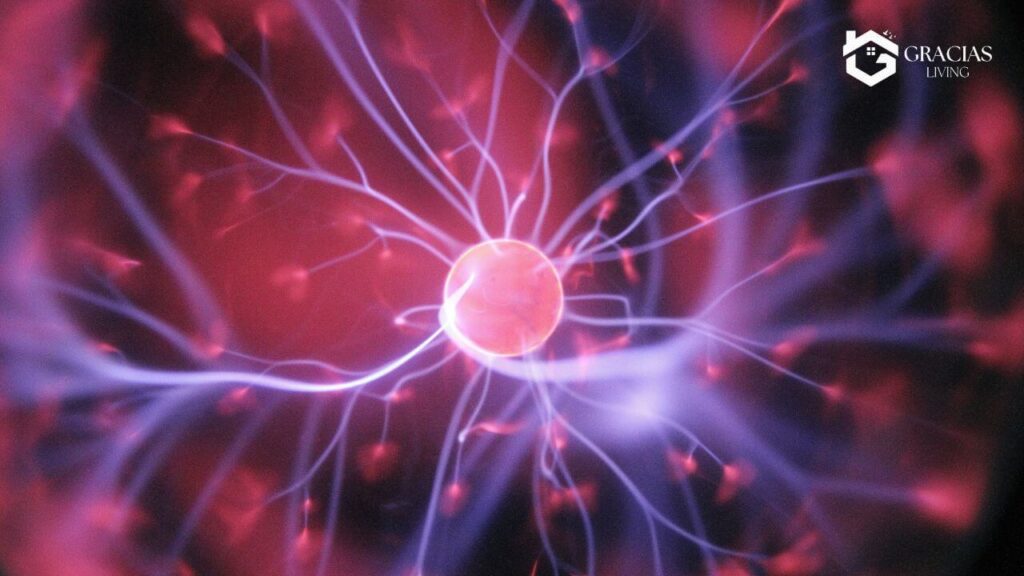Quick Summary of the article:
- A person with dementia experiences a deterioration in their mental abilities, which impacts their mood, behavior, coordination, language, reasoning, and memory.
- The symptoms of dementia grow with time as the condition advances through stages.
- Dementia stages advance through individuals showing no visible signs to losing the ability to communicate verbally and may become bedridden.
- It is possible to give the best care possible with perseverance, understanding, and support.
- As dementia progresses, individuals may require specialized memory care services to meet their evolving needs.
Dementia is a progressive condition and there are seven stages in dementia. Dementia makes it hard for people to remember things, think clearly, and make decisions.
As Dementia advances, individuals may transition to more severe stages of dementia, where symptoms become more pronounced and debilitating.
However, by recognizing the early signs of dementia and seeking medical guidance, we can play a proactive role in managing our loved one’s condition and improving their quality of life.

Understanding Seven stages of Dementia
Dementia progresses through several stages, with stages 1, 2, and 3 being classified as pre-dementia stages due to the milder symptoms that don’t yet meet the criteria for a formal diagnosis.
During these initial stages, individuals may experience subtle changes in memory and cognitive function, such as occasional forgetfulness or difficulty finding words.
While these symptoms may not be severe, they can still impact daily life and warrant attention.
Stage 1: No cognitive impairment
At this stage, individuals show no signs of dementia.
They function normally in their daily lives, with no memory problems or cognitive decline. However, it’s important to note that dementia can develop silently without obvious symptoms.
Stage 2: Very mild cognitive decline
In this stage, individuals may start to experience subtle changes in memory and cognitive function.
They might forget names or where they placed objects occasionally. Other symptoms may include:
- Difficulty finding words
- Mild forgetfulness that does not significantly interfere with daily life
- Challenges in remembering names or recent events
Stage 3: Mild cognitive decline
At this stage, the symptoms become more noticeable.
Individuals may have difficulty remembering recent events or conversations. They might also struggle with tasks that require concentration and organization.
Symptoms include:
- Forgetfulness that impacts daily life
- Difficulty concentrating on tasks
- Increased frustration with memory lapses
Stage 4: Moderate cognitive decline
As dementia progresses to this stage, individuals experience significant memory loss and cognitive impairment.
They may have trouble remembering important details such as their address or phone number.
Other symptoms may include:
- Difficulty managing finances
- Challenges with problem-solving and decision-making
- Increased confusion and disorientation

Stage 5: Moderately severe cognitive decline
In this stage, individuals require more assistance with daily tasks.
They may forget details about themselves, such as their own history or personal information. Symptoms include:
- Difficulty recalling recent events or conversations
- Needing assistance with daily activities such as dressing and bathing
- Increased confusion, especially in unfamiliar environments
Stage 6: Severe cognitive decline
At this stage, individuals experience profound memory loss and cognitive decline.
They may struggle to recognize familiar faces, including those of close family members. Symptoms include:
- Difficulty communicating verbally
- Inability to perform basic self-care tasks independently
- Changes in personality and behavior, such as agitation or aggression
Stage 7: Very severe cognitive decline
In the final stage of dementia, individuals lose the ability to communicate verbally and may become bedridden.
They require round-the-clock care to meet their needs, including feeding, bathing, and mobility assistance. Other symptoms may include:
- Loss of motor skills and mobility
- Inability to recognize loved ones
- Minimal or no response to stimuli

How to care for a loved one with Dementia?
Dementia is a progressive condition that affects cognitive abilities of a person,such as loss of memory, thinking and reasoning abilities.
While everyone’s experience is unique, most follow a similar path of decline over time.
Dementia has seven stages, and each one brings more difficulties. As time passes, new problems show up, and old ones get worse. Knowing these stages and their symptoms helps families know when it’s time to rethink how they care for their loved ones.
In the early stages, individuals may experience mild forgetfulness or difficulty finding words. As dementia progresses, memory loss becomes more pronounced, and daily tasks become challenging. You may notice changes in behavior and personality, such as confusion or aggression. Supporting and understanding them along the way is vital.
Caring for a loved one with dementia can be challenging, but with patience, empathy, and support, it is possible to provide the best possible care. Some tips for caring for a loved one with dementia include:
- Establishing a routine and maintaining consistency in daily activities
- Providing a safe and supportive environment, with necessary adaptations as the Dementia progresses.
- Encouraging independence and autonomy whenever possible.
- Seeking support from healthcare professionals, support groups, and community resources
- Taking care of your own physical and emotional well-being to prevent caregiver burnout
We should adjust care as necessary to keep them comfortable and well. Recognizing the stages of dementia and finding the right dementia helps families manage this difficult condition wisely.

Memory Care Options in Dementia
As dementia progresses, individuals may require specialized memory care services to meet their evolving needs. Memory care facilities like GraciasLiving offer a supportive environment with trained staff who understand the unique challenges of dementia.
These facilities provide personalized care plans, cognitive stimulation activities, and a secure setting to ensure the safety and well-being of residents.
Memory care options include assisted living communities, nursing homes with memory care units, and specialized dementia care facilities.
When considering memory care options, it’s essential to visit multiple facilities, ask questions, and choose the one that best meets the individual’s needs and preferences.
When to seek memory care will vary depending on a senior’s dementia symptoms, health status, living situation, and more. Speak to us for the Dementia Care needs of your loved ones.
Conclusion:
The progression of dementia varies from person to person and depends on factors such as the underlying cause of dementia and individual health.
In some cases, dementia may progress slowly over several years, while in others, it may advance more rapidly.
Early detection and appropriate management can help slow down the progression of the disease and improve quality of life.
Understanding the seven stages of dementia and addressing common concerns such as the progression of the disease, life expectancy, and caregiving strategies is essential for individuals and families to understand the challenges of dementia.




